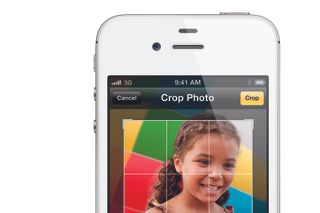iPhone’s Siri hacked for Android
Mobile developers crack smartphone voice recognition software protocol for use on other devices

A mobile development firm has published a hack for the protocol used for Apple's mobile voice recognition personal assistant Siri.
Applidium developers have said the hack has enabled them to use Siri's recognition engine on any device, little more than a month after Apple launched the natural language processing technology-based software on its iPhone 4S device.
They were able to crack the open HTTP protocol Siri uses to communicate with a remote server, which it relies on to process commands over a 3G or Wi-Fi connection, so it could be ported to other devices, including those running Google's Android OS.
I'd fully expect it to move to other iPhones and iPads once the wrinkles have been removed.
"Yes, that means anyone could now write an Android app that uses the real Siri," the firm said in a report posted on its website. "Or use Siri on an iPad! And we're going to share this know-how with you."
The developers sniffed Siri's HTTP traffic by setting up a proxy server and configuring the iPhone 4S to use it. Only then did they realise its traffic was TCP based by using tcpdump on a network gateway. This revealed a certificate that suggested Siri was communicating with a server named guzzoni.apple.com over HTTPS.
"Basically all we had to do was to setup a custom SSL certification authority, add it to our iPhone 4S, and use it to sign our very own certificate for a fake 'guzzoni.apple.com.' And it worked: Siri was sending commands to your own HTTPS sever," the company explained. "Seems like someone at Apple missed something!"
Get the ITPro. daily newsletter
Receive our latest news, industry updates, featured resources and more. Sign up today to receive our FREE report on AI cyber crime & security - newly updated for 2024.
Applidium described Siri's protocol as "opaque" and "very chatty" after further reverse engineering work. "Your iPhone sends a ton of things to Apple's servers," it said. "And those servers reply an incredible amount of information. For example, when you're using text-to-speech, Apple's server even reply a confidence score and the timestamp of each word."
It has released a set of tools, written in Ruby, C and Objective-C languages, to understand the protocol, which should be sufficient to allow anyone with the technical knowledge to write a Siri-enabled application.
"Let's see what fun application you guys get to build with it," the company added. "Let's see how long it'll take Apple to change their security scheme."
Apple had not responded to requests for comment at the time of writing.
But Rob Bamforth, principal communications and convergence analyst for Quocirca, told IT Pro that the hack did not really constitute a serious breach. "Apple only seemed to be limiting Siri to keep the lid on early use," he said.
"It might not fancy being a wide open service at this stage, based on Apple's track record of openness, but I'd fully expect it to move to other iPhones and iPads once the wrinkles have been removed, and the 'premier' status of Siri has passed."
A 25-year veteran enterprise technology expert, Miya Knights applies her deep understanding of technology gained through her journalism career to both her role as a consultant and as director at Retail Technology Magazine, which she helped shape over the past 17 years. Miya was educated at Oxford University, earning a master’s degree in English.
Her role as a journalist has seen her write for many of the leading technology publishers in the UK such as ITPro, TechWeekEurope, CIO UK, Computer Weekly, and also a number of national newspapers including The Times, Independent, and Financial Times.





